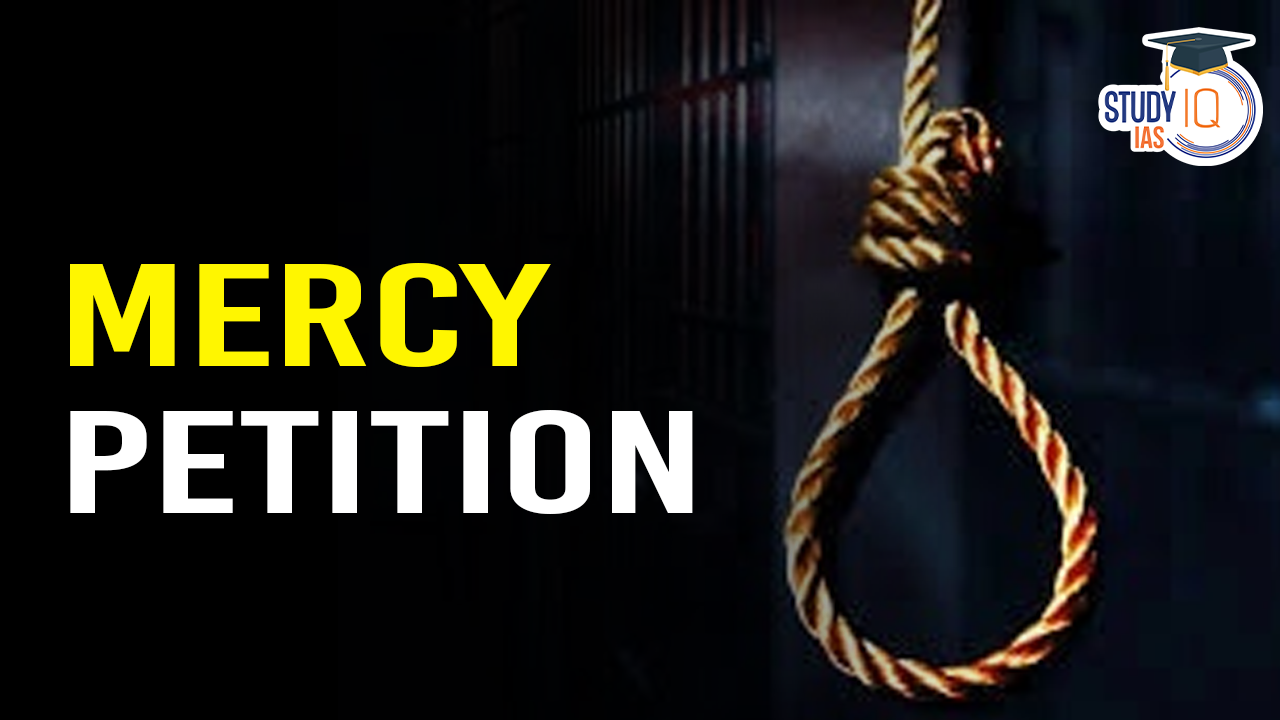Table of Contents
Context: President Droupadi Murmu has rejected the mercy petition of Mohammed Arif, a Pakistani national and member of the Lashkar-e-Taiba.
What is Mercy Petition?
- Definition: A mercy petition is a formal request by an individual sentenced to death or imprisonment, seeking clemency from the President or the Governor.
- Global Practice: The concept of mercy petitions is observed in many countries, including the United States, the United Kingdom, Canada, and India.
- Right to Life: Everyone has the basic right to live, a fundamental right under Article 21 of the Indian Constitution.
Constitutional Framework for Mercy Petition
In India, a mercy petition to the President is the last constitutional recourse for a convict sentenced by a court of law.
- Article 72: Presidential Powers
- The President has the authority to grant pardons, reprieves, respites, or remissions of punishment, or to suspend, remit, or commute sentences for any person convicted of an offence:
- In cases where the sentence is imposed by a Court Martial.
- For offences against laws within the executive power of the Union.
- In cases where the sentence is a death sentence.
- The President has the authority to grant pardons, reprieves, respites, or remissions of punishment, or to suspend, remit, or commute sentences for any person convicted of an offence:
- Article 161: Governor’s Powers:
- The Governor of a State has the power to grant pardons, reprieves, respites, or remissions of punishment, or to suspend, remit, or commute sentences for any person convicted of an offence against state laws.
Grounds For Filing Mercy Petition
- The prisoner’s health, including physical or mental fitness.
- The financial condition of the prisoner’s family, particularly if the prisoner is the sole bread earner.
| Difference Between Pardoning Powers Of President And Governor |
|
Process of Making a Mercy Petition
- Absence of Statutory Procedure: There is no formal statutory procedure for handling mercy petitions.
- Submission: After exhausting all legal remedies, the convict or a relative on their behalf can submit a written petition to the President.
- Initial Handling: The petitions are received by the President’s secretariat.
- Forwarding: The President’s secretariat forwards the petitions to the Ministry of Home Affairs.
- Review and Recommendations: The Ministry of Home Affairs reviews the petition and provides comments and recommendations.
| Related Information |
|


 Delimitation: Issues, Legal and Constitu...
Delimitation: Issues, Legal and Constitu...
 SAMARTH Udyog Bharat 4.0: Transforming I...
SAMARTH Udyog Bharat 4.0: Transforming I...
 BHIM 3.0 Launched by NPCI: Key Features,...
BHIM 3.0 Launched by NPCI: Key Features,...





















